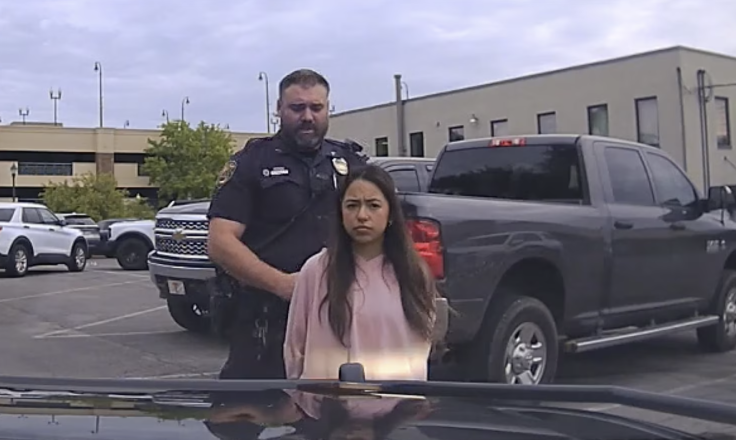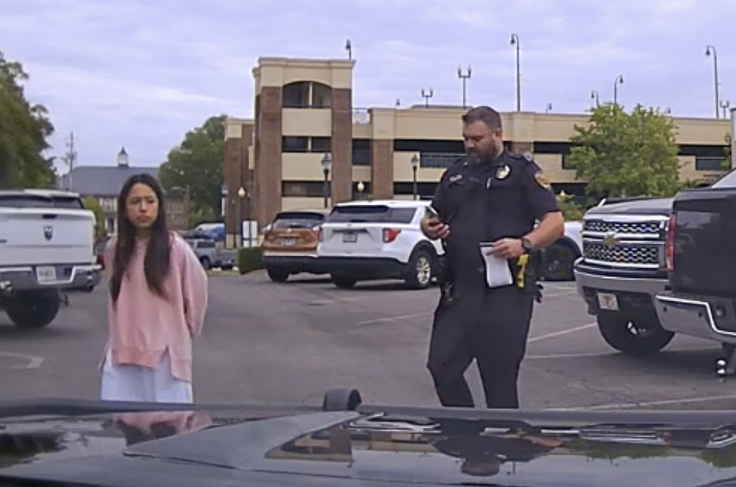College Student Snatched by ICE in Mistaken Traffic Stop: Fears Grow Over Local Police Powers

Ximena Arias-Cristobal, a 19-year-old college student from Dalton, Georgia, remains in US Immigration and Customs Enforcement (ICE) custody following a traffic stop that local police have now admitted was a case of mistaken identity. The incident occurred on 5 May when Arias-Cristobal was pulled over for allegedly making an illegal turn—an allegation since clarified as inaccurate. Despite the error, she was arrested for driving without a valid licence and handed over to immigration authorities.
The student, who has lived in the US since the age of four, is currently being held at Stewart Detention Center in Lumpkin, Georgia, and is awaiting an immigration bond hearing on 20 May. The case has sparked public outcry, with supporters calling for her immediate release and questioning the role of local law enforcement in escalating the situation.
A Mistake That Changed Everything
According to her attorney, Dustin Baxter, Arias-Cristobal was wrongly identified during a routine stop and pulled over for an offence she didn't commit. "It's maddening," he told CBS News. "A police officer's mistake cost this person her freedom and could now cost her everything she's built here."
Ximena, a student at Dalton State College, is widely regarded as a diligent and engaged member of the community. Friends, teachers, and local residents have rallied around her, launching a GoFundMe campaign to assist with legal fees and holding vigils in her support.
What began as a typical weekday morning has now evolved into a case emblematic of the complex and often unforgiving realities of US immigration enforcement.
A Family Under Pressure
Ximena's father, Jose Francisco Arias-Tovar, was also detained by ICE just weeks earlier after a separate traffic stop. He is being held at the same detention centre. Their dual arrests have left the family in a state of distress and have further fuelled criticism of the local 287(g) programme—a federal partnership that allows local police to share information with immigration authorities.
Whitfield County, where the arrest took place, participates in this programme, meaning individuals can be referred to ICE even when no criminal charges are filed. Critics argue this blurs the line between local policing and federal immigration enforcement, with dire consequences for immigrant families.
The Human Toll

The emotional toll has been heavy—not just for the family, but for the wider community. "She's not a threat. She's a student, a neighbour, someone we see every day," said one classmate during a peaceful rally outside Dalton City Hall.
Teachers at Dalton State have echoed those sentiments, describing Ximena as "polite, driven, and kind-hearted." Many have voiced concern about the fear this case has instilled among students from immigrant backgrounds, who now worry they could face similar fates over minor infractions.
The college has not issued a formal statement but confirmed that counselling services are being offered to students impacted by the incident.
A Pattern, Not an Exception
Ximena's case is not unique. Across the United States, routine encounters with law enforcement continue to trigger immigration holds and deportation proceedings. In 2022, a similar incident in Tennessee saw a university student detained by ICE after a broken tail light stop. In North Carolina, a minor car accident led to a DACA recipient facing removal proceedings.
Civil rights groups argue these incidents highlight systemic overreach and question whether current immigration practices align with American values of fairness and justice. They warn that allowing local police to act as extensions of federal immigration services undermines community trust and discourages people from reporting crimes or cooperating with investigations.
What's at Stake
With her bond hearing approaching, Ximena's future remains uncertain. Her legal team is exploring options, including the possibility of DACA protection, though her eligibility is unclear. Meanwhile, advocates are pushing for a broader conversation about how policies like 287(g) are applied—and at what cost.
"This isn't just about one student," said an immigration lawyer involved in the case. "It's about the kind of country we want to be. Do we protect those who've grown up here, contributed, and tried to build a future—or do we send them away over a mistake?"
As the community waits for answers, one thing is certain: the outcome of Ximena's case will echo far beyond Whitfield County.
© Copyright IBTimes 2025. All rights reserved.





















